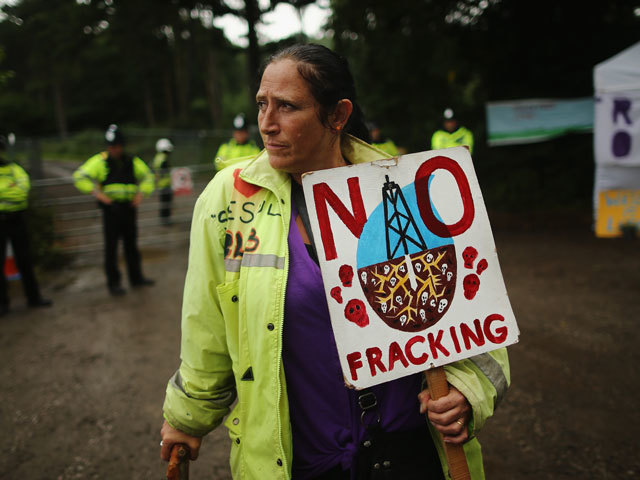
Almost half of UK homes would object to having a shale gas operation within 10 miles of their home, a new survey has claimed.
But less than a third of people surveyed admitted having a good understanding of exactly what fracking and shale extraction meant.
The survey, carried out by ICM for the Institution of Mechanical Engineers, revealed 47% of people did not want a shale gas site near their homes, compared to 14% who supported the project.
The figures come just days after Prime Minister David Cameron said local authorities could be given extra cash in tax revenue for supporting fracking projects.
The government said on Monday that local authorities would receive 100% of business rates collected from shale gas projects – double the normal amount.
But IMechE head of energy Tim Fox said the survey’s findings suggested developers would need to do more than just offer cash to convince the project to support projects.
“Building trust between Government, industry and communities is essential if we wish to make use of this technique in shale rocks under the UK,” he said.
“If communities are to make informed decisions on whether to allow fracking to take place in their locality they need to understand the issues and have an opportunity to discuss them sensibly. It is therefore worrying that about two-thirds of those polled in this survey either don’t know what fracking is or indicated that they only have ‘some’ understanding of the activity.
“Clearly much more work needs to be done by industry and Government to inform the public about the techniques involved and the various controls being put in place to protect the local environment and ensure the safety of the process.”
Last month the Government set out its roadmap for shale gas and oil extraction in the UK, which it believes could supply British gas requirements for the next 30 years and create 74,000 jobs.
But campaigners have expressed concern over potential environmental impact of the process.
Speaking at Prime Minister’s Questions today, Cameron admitted the Government needed to do a better job of explaining the process and benefits to the public.
“The figures are that if we recovered just 7% of the Bowland shale reserves, that would provide us with gas in this country for 30 years,” he said.
“But we have clearly got to do a far better job of explaining and working with communities about the benefits and also talking frankly about the process.
“I think there are a huge amount of myths being put around in order to frighten people about shale gas extraction where as we can see in the United States it can be extracted safely and cleanly, providing effective low-cost green energy for our homes and businesses and make our country more competitive at the same time.”
Recommended for you
